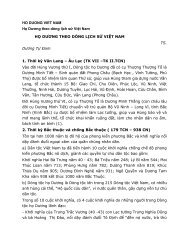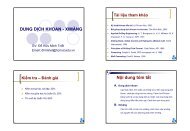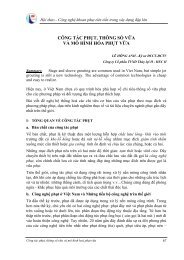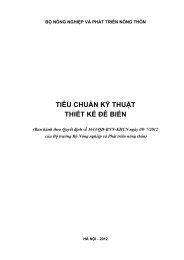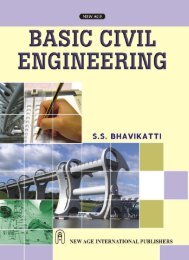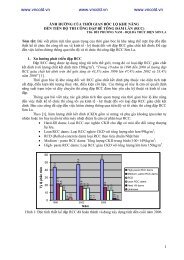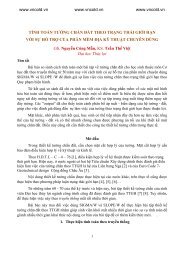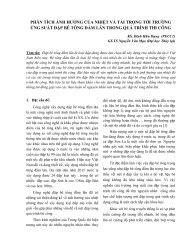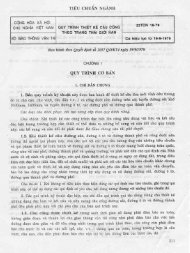Civil Engineering Project Management (4th Edition)
You also want an ePaper? Increase the reach of your titles
YUMPU automatically turns print PDFs into web optimized ePapers that Google loves.
214 <strong>Civil</strong> <strong>Engineering</strong> <strong>Project</strong> <strong>Management</strong><br />
or may need to reject dayworks rates as a means of payment unless work has<br />
been instructed on that basis.<br />
17.8 Clause 12 claims for unforeseen conditions<br />
Among the more difficult and therefore more challenging types of claim are<br />
those relating to ‘unforeseen conditions’ – usually ground conditions. Clause 12<br />
of the ICE conditions permits a contractor to claim extra payment:<br />
if the contractor encounters physical conditions (other than weather conditions or<br />
conditions due to weather conditions) or artificial obstructions which conditions or<br />
obstructions could not in his opinion reasonably have been foreseen by an experienced<br />
contractor.<br />
There has frequently been criticism of this Clause 12 definition, but it has<br />
stood the test of many contracts over the years, and no alternative phrase has<br />
ever been put forward that works distinctly better. Some employers have tried<br />
deleting the provisions of Clause 12 entirely; but the contractor then adds a<br />
premium to his prices for the added risk he takes, so the employer pays this<br />
whether or not any unforeseen conditions arise. A point to be borne in mind if<br />
Clause 12 is deleted, is that it is usually impracticable to allow each tenderer to<br />
conduct his own site investigations, so he has no way of limiting his risk other<br />
than by raising his price. On a pipeline, for instance, the road authorities and<br />
private landowners would not permit each tenderer to sink his own test borings<br />
all along the route; nor may the employer allow each tenderer to sink test<br />
borings on the site of some proposed works.<br />
A different attempt to avoid the problem of unforeseeable ground conditions<br />
is to specify the nature of the ground to be excavated as inclusive of practically<br />
everything, for example, in soft or hard material including gravel, cobbles, boulders,<br />
rock or concrete, running sand, etc. But if Clause 12 is left in the contract it<br />
over-rides such a specification because the extent to which any of these materials<br />
occurs remains undefined, so ‘unforeseeable conditions’ could still occur.<br />
Although there is plenty of scope for the contractor to claim that things have<br />
not turned out as he expected, the criterion is whether ‘an experienced contractor’<br />
could have foreseen the ‘event’ or not. To decide this with respect to ground<br />
conditions depends on the geotechnical information made available to tenderers<br />
together with any information readily available, such as that relating to<br />
the geology and soils of the area, and common experience locally. It needs to be<br />
remembered that when the contractor undertakes the obligation to construct<br />
the works he should have looked into these matters. Often it is not so much the<br />
event as such which is unforeseen, but its magnitude.<br />
For example, test borings may show that hard bands of siltstone are likely<br />
to be encountered in tunnelling. But if, instead of occasionally appearing in the<br />
tunnel face and disappearing, a band manages to stay exactly in the soffit of the<br />
tunnel for a considerable length – this has occurred – this greatly adds to driving




